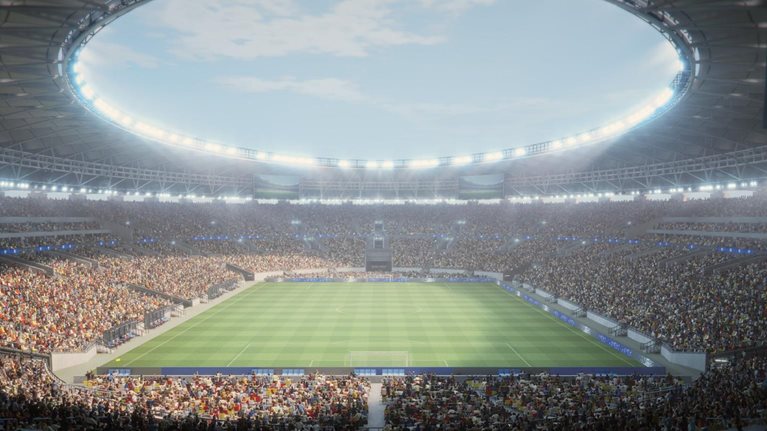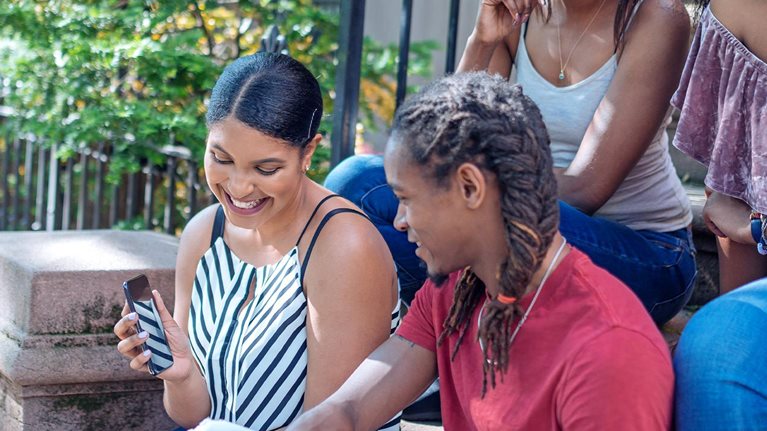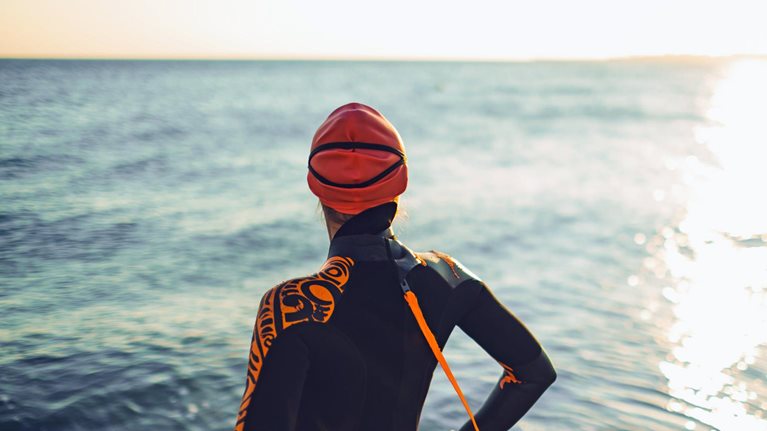Alex Rodriguez is a seasoned entrepreneur, investor, and leader who has transformed his success on the baseball field into a multifaceted business career. Known for his 22 seasons in Major League Baseball as an All-Star and World Series champion with the New York Yankees, Rodriguez is the founder, chairman, and CEO of A-Rod Corp, a diversified investment and holding company with a wide-ranging portfolio that spans real estate, sports, media, and technology. In June 2025, he became co-owner and cochairman of the National Basketball Association’s Minnesota Timberwolves and the Women’s National Basketball Association’s Minnesota Lynx. Rodriguez recently spoke with McKinsey senior partner Alberto Chaia about Latinos in sports, the subject of a new report from the McKinsey Institute of Economic Mobility. The following is an edited version of their conversation.
Alberto Chaia: What was it like growing up Latino and making it to the top of your sport?
Alex Rodriguez: I was born in 1975 to immigrant parents from the Dominican Republic, in New York City—right in the shadow of the old Yankee Stadium. Later, we moved to Miami.
When I was 12, two years after my father left, I remember going to a supermarket with my mother, and she used food stamps. That was the first time I realized that she was getting help from the government. My mom had to work two jobs. I remember her getting up at 4:30 in the morning and taking two trains to work. She worked as a secretary during the day, and she served tables at night.
I can count on one hand the number of times my mother saw me play in Little League and in high school, because she was always working to pay the bills. I think I got a lot of my determination and grit from my mom.
Alberto Chaia: Have things changed for up-and-coming Latino players today? Or do they still face the same kinds of barriers you did?
Alex Rodriguez: It’s great to see someone like Juan Soto, who’s Dominican and signed with the Mets for $765 million over 15 years, but players like him are far and few between.
Most come from very humble beginnings. The average career [of a baseball player] is only about five and a half years, and many players don’t have the financial literacy or the knowledge to be able to take competitive advantage of their capital. Having millions of dollars in your twenties puts you in the 1 percent of the 1 percent. But if you can’t capitalize on that, it can slip away fast. There’s a big opportunity to help players bridge that gap.
Alberto Chaia: How important was mentorship for you when you were younger? And how did youth sports shape your success later in life?
Alex Rodriguez: When my dad left, I naturally gravitated toward strong, smart men who could guide me. Two things saved my life: the Boys & Girls Club and sports.
Two mentors shaped my path before I turned 17. One was Eddie Rodriguez [no relation], who coached baseball at the Boys & Girls Club in Coconut Grove, Florida, for over 40 years. More than 25 Major League players came out of that tiny club.
The other was my high school coach, Rich Hoffman, at Westminster Christian School. He was there for over 30 years, won 11 championships, and had many Major League Baseball players come out of his program. When I was 15 years old, I was very insecure and a shadow of the player that I eventually became. Coach Hoffman told me, “This year, you're going do OK in your sophomore year. Next year, you’ll be the number-one junior in the country. And then in your senior year, you’re going to be the number-one pick in the Major League Baseball draft.” I looked around and said, “Are you talking to me, Coach?” He said, “Yeah. I’m talking to you.”
That taught me the power of words and the power of mentorship. A great leader will see you in a light that’s sometimes 100 percent better than what you think of yourself. That can give you a lot of energy to chase your goals.
Alberto Chaia: One of the findings in our recent research is that Latino kids start playing sports at very similar rates as other groups but tend to drop out of organized sports faster. Why is that happening?
Alex Rodriguez: There’s never been a time in American history when more kids are playing baseball and softball. However, at the age of 13, there’s massive drop-off.
Affordability is becoming a much bigger issue. If I were a ten-year-old again in today’s 2025 environment, my mother would not be able to pay thousands—and in some cases, tens of thousands—of dollars for me to travel every weekend for a game. Aluminum bats cost more than $500 today, and gloves are $300 or $400. Before you know it, you’re having to refinance your house. And we didn’t even have a house.
I was lucky because I had mentors who stepped up and sponsored me. But you’re talking about a few hundred dollars back then, compared to tens of thousands of dollars today, to keep up with the Joneses.
A lot of kids quit on the ride home with their parents or mentors. That signals to me that we’re putting too much focus on results. Instead of asking, “Did you hit a home run?” or “Did you strike out ten batters?” we should be asking, “Did you enjoy the game? Were you well prepared? How did you feel out there?”
We need to put the focus on the process and take out the emphasis on results. The game has gotten so competitive. It’s become such a big business that I hear 12- and 13-year-old kids—or the parents, who are, honestly, the worst sometimes—saying, “My kid throws 78 miles an hour. My kid hit a home run like [New York Yankees outfielder] Aaron Judge.”
None of that stuff is important. What’s important is: Are you enjoying the game? Do you have good passion for the sport? Are you learning how to pitch, versus how fast you pitch? Are you learning how to be a good hitter?
Who cares how far you hit the ball at the age of 13? Thank God, I didn’t have any of these cobwebs in my mind, because these are restrictions that people put on themselves, rather than just enjoying the art of baseball.
Alberto Chaia: You’re the father of two daughters. How do you view female participation in sports today?
Alex Rodriguez: I think we’re in a good place. We’ve seen incredible growth with the WNBA. With those rising tides, all kinds of boats get lifted.
The growth in women’s sports is visible everywhere—in participation, in viewership, and in social media engagement.
Alberto Chaia: How important is Latino fandom and engagement for sports today?
Alex Rodriguez: I think all four of the American major sports commissioners from the NFL, NBA, MLB, and NHL1 see the Latino community as an enormous opportunity for growth.
There’s real passion among fans. Your mood, your self-esteem, how you feel about yourself, and how you feel about your community is often tied up with wins and losses from your team. What’s interesting about our community is that we are true fans. We buy the sport, we watch the sport, and we live the sport. The more sports leaders can connect with that energy, the more growth there will be.
Alberto Chaia: Are you seeing any teams or sports engaging Latino fans better than others?
Alex Rodriguez: The NFL is going back to Mexico City for games in 2026. They’re taking real initiative. The Dallas Cowboys also do an outstanding job. Jerry Jones is one of the great owners of our generation, and he has a real focus on Latin America, especially Mexico as the neighbor to the south of Texas. You hear Jerry going around saying, “Los Vaqueros.” It’s not the most perfect Spanish, but he’s trying like hell.
One big opportunity is outreach in our native language. I come from a generation that spoke English at the mall, and Spanish at home with Grandma, and Spanglish with my brothers. If teams and media are producing content in English, why not add Spanish subtitles, or vice versa? It’s also important to meet the fans where they are—in the barrios, in their media channels, in their language.
Alberto Chaia: How well do you think teams, leagues, and the media engage with Latino communities at the level of their individual heritage?
Alex Rodriguez: Billions of dollars have been spent and lost over many years in efforts to try and understand our community. But we can be fragmented. Some in the Mexican community may feel ties with Europe. The same goes for those from Colombia or Venezuela. Dominicans or Puerto Ricans might connect more with the East Coast, while Mexicans might identify with the West Coast.
It’s not that one suit fits all. Sports leaders should be strategic about creating more custom-made suits for each part of this Latino community. As an owner and a former player, I see enormous potential. We have to figure out how to unlock it.
Alberto Chaia: There’s increasing Latino representation among players in some sports, but not necessarily at the managerial or executive level. What are your reflections on that?
Alex Rodriguez: It has never made sense to me when I see a company trying to grow business through the Latinx community but doesn’t have any Latinos on its board.
Organizations need diversity. People of color, women, and folks that understand the community are able to speak to the community and able to grow that community. If you want to grow in the Hispanic market, you need to have Hispanic folks at the executive level.
Alberto Chaia: You’re now a co-owner of the NBA’s Minnesota Timberwolves and the WNBA’s Minnesota Lynx. What has your experience been like as a Latino owner in a predominantly non-Latino sport?
Alex Rodriguez: It’s been a dream come true. I grew up with a single mom on food stamps, and in one generation, I’ve experienced the kind of wealth creation that really only happens in America. I’m very fortunate to be born here, live here, have become a champion with the New York Yankees here, and now grow my businesses here in this country.
I’m also very fortunate to work with Adam Silver. He’s a progressive and forward-thinking NBA commissioner who wants representation in the room from all colors and genders. I’ve been one of the beneficiaries of that. I feel really good being in that room. But my job doesn’t stop there. It’s not enough just for me to be in the room and be “one of the few” or “the only.” I want to leave that door open and let others come in with me as well.


